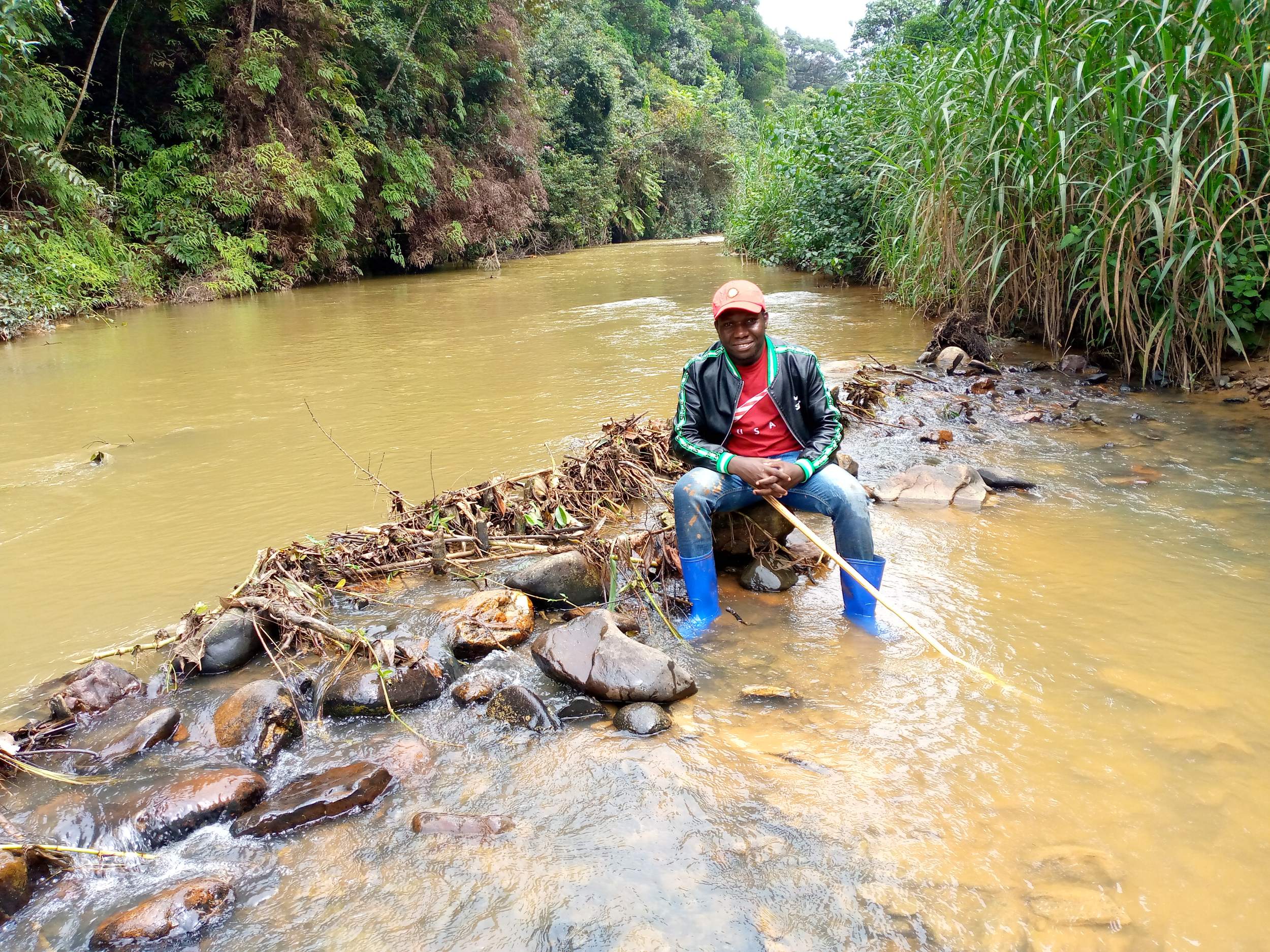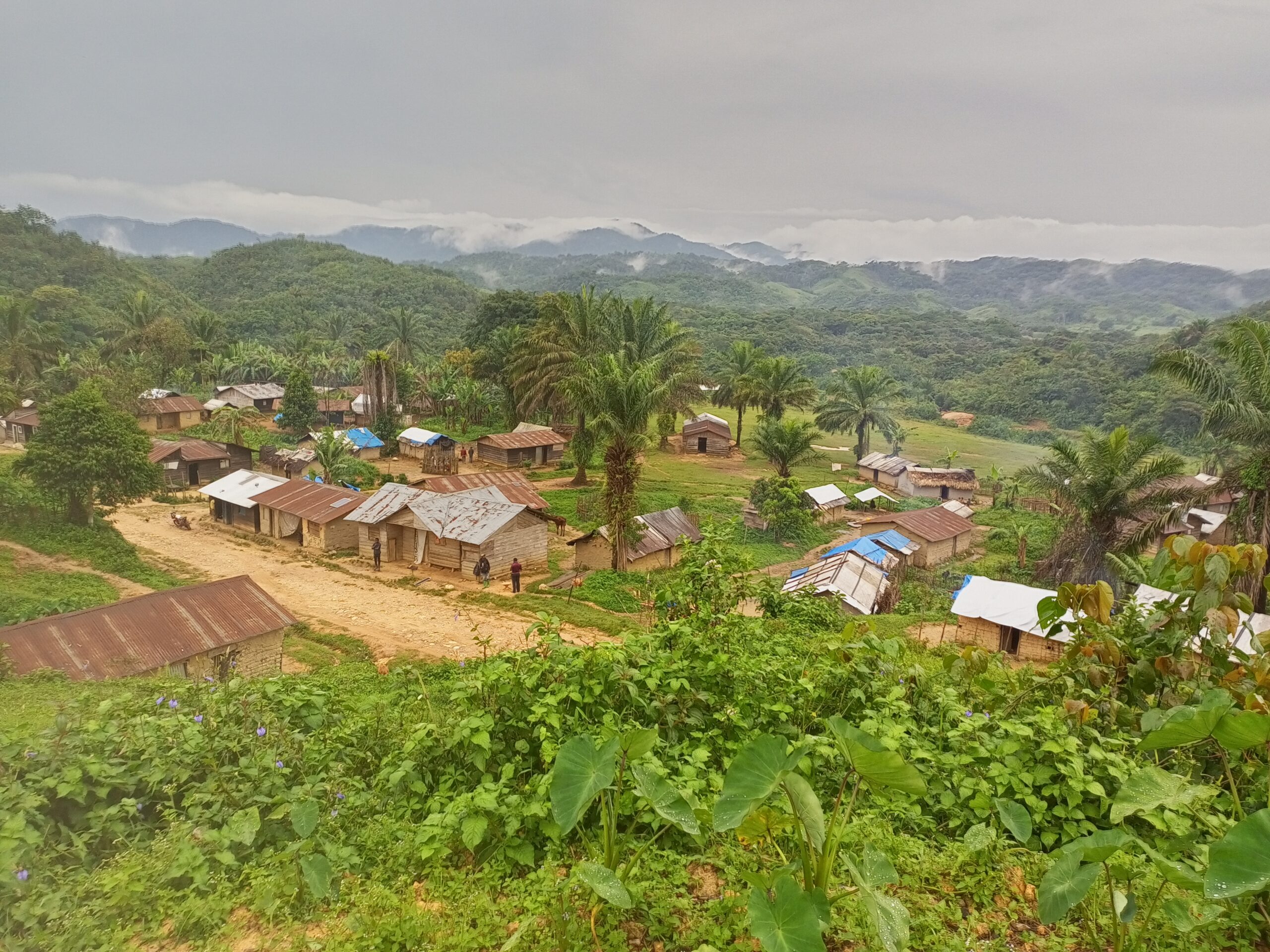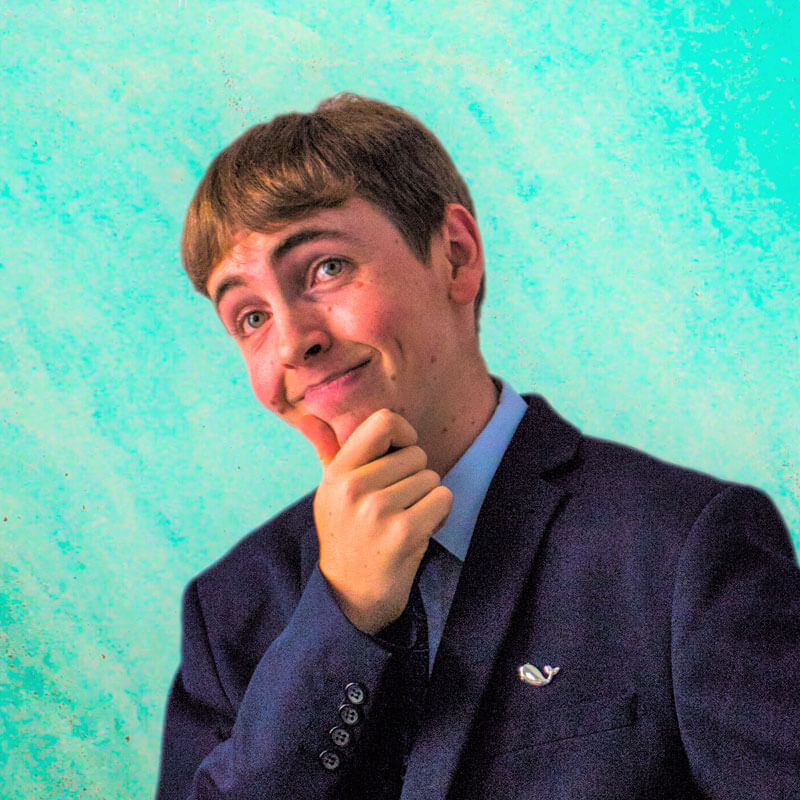EXL_I Graduate Leads Community Conservation in the Congo
Having graduated from CoalitionWILD’s EXCELerator this 2021, Gervais Muderhwa shares his vision for science-backed sustainable development and protected areas serving people and planet in the Congo.

At the heart of Africa lies the Congo Basin: two million square kilometers of lush rainforest fed by the second largest river on the planet. Resplendent with life in all its forms, this biodiversity hotspot is home to more than 11,000 species of tropical plants, 1,200 species of birds, 700 fish, 450 mammals and 280 reptiles, and sequesters more than 30 billion tons of carbon, much of it 10,000 years old. Truly a land of great beauty and hardship, never has the phrase “the front lines of conservation” been more appropriate than in this centuries-old tropical melting pot.
Between 2004 and 2014, annual rates of small-scale clearing for agriculture in primary forests and woodlands doubled, which is the primary driver of deforestation in the basin and a major cause of the decline in the region’s endemic wildlife populations. The DR Congo, already the fourth most populous nation in Africa, is expected to see its population quadruple by 2100, greatly exacerbating human-wildlife pressures and conflicts. And with its key species already on the brink of extinction, encroachment and habitat loss due to mismanagement of protected areas are not threats that the wildlife of the Democratic Republic of Congo can afford to manage. Native giraffes and gorillas, chimpanzees and elephants are all listed as critically endangered, with peacocks and bonobos to follow. Fortunately, Gervais Muderhwa, a young ecologist, local environmentalist, and EXCELerator alumnus, is working on a solution, a panacea to these problems, by building an evolutionary model, supported by science, for community conservation.

Gervais is the Project Manager of a national environmental NGO focused on rural areas, called MKAAJI MPYA asbl, which works with farmers and indigenous communities in and around Kahuzi Bièga National Park in South Kivu. With his colleagues, Gervais surveys this internationally renowned biodiversity hotspot, studying the spread and prevalence of fauna and flora, then shares his findings with local communities in their language, including local dialects, raising awareness of the importance of conservation among rural populations, mediating and reconciling their interests with conservation goals.
Gervais notes, “I was fortunate to be trained in these issues during my university studies in the Department of Environment and Sustainable Development at the Institut Supérieur de Développement Rural de Bukavu (ISDR-Bukavu) here in DRC. But most people living in rural areas of the DRC may not have had the chance to study and this remains a hindrance to conservation as the ecological gain is not as visible to rural communities. For rural populations, and more so for farmers, wildlife conservation is a foreign concept, complex and difficult to grasp, let alone apply. So, I am committed to breaking down barriers with these marginalized categories of farmers, I do this for those who have not had the chance like me to study the subject, mitigating the persistent resistance to conservation mechanisms and helping small farmers to take ownership of the cause as leaders in their communities while valuing their traditions, customs and cultural practices recognized to nature. If there is one thing I have learned, it is that here in rural areas, biodiversity is a source of income. Protect these natural riches and everyone can reap the benefits.”
The first official studies on biodiversity conservation of MKAAJI MPYA asbl should be published this year. They will focus on the biodiversity conservation challenges in the ecological corridor of the Kahuzi Biega National Park that have not yet been studied, the threats to animal biodiversity and the rich mosaic of forest ecosystems. Once the main drivers of local biodiversity loss have been identified, the understanding and contextual analysis of the threats, and the challenges of biodiversity conservation in rural areas have been addressed, the next step will be to make the results of this research available to the public, including rural and riparian communities in this park corridor, park authorities, international NGOs, and government policy makers, to provide additional knowledge, and to formulate sound and timely mechanisms, supported by science and rural communities, to achieve long-term conservation outcomes. The interdisciplinary approach and focus on the knowledge, cultures, and customs of rural communities are essential to the sustainability of conservation projects, but also to balancing environmental and humanitarian objectives. As Gervais says, “There is no conservation without community and there are no communities without conservation.”

“It is difficult for me to put into words how grateful I am to CoalitionWILD for this opportunity. It has completely transformed my life, giving me new skills, networks, experiences, resources, and a global reach to translate my vision for MKAAJI MPYA asbl into a palpable reality. It has given me the confidence to talk about my work and juggle the often overwhelming array of stakeholders and challenges I encounter in my work day in and day out. And just as communities and conservation are interdependent, so too is the EXCELerator community, which provides an incredible platform for exchange and knowledge sharing among people of all cultures, learning and growing from each other’s strengths. It’s an experience that will live on in my memory and a community that will last a lifetime. Thank you CoalitionWILD and let’s continue to create a better future together.”


